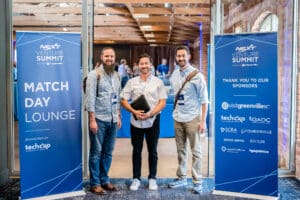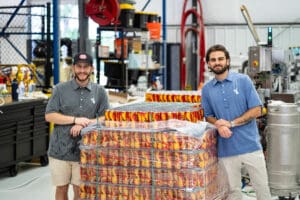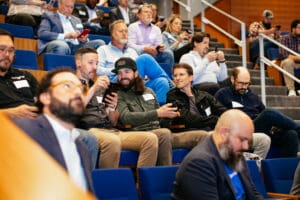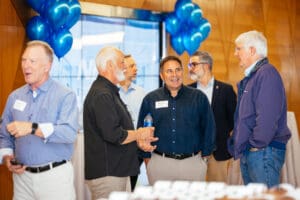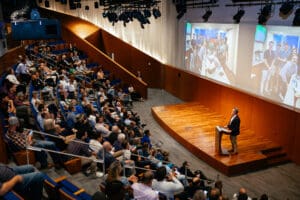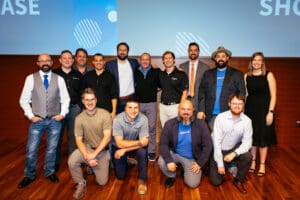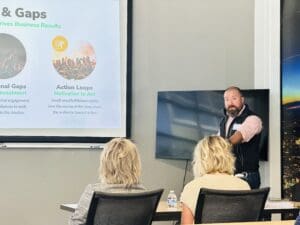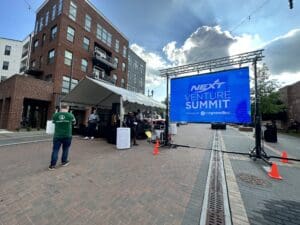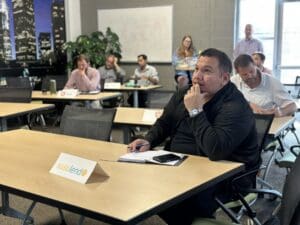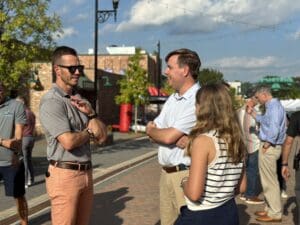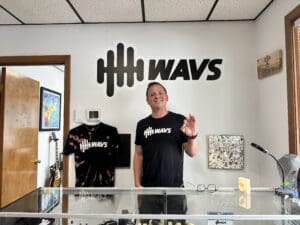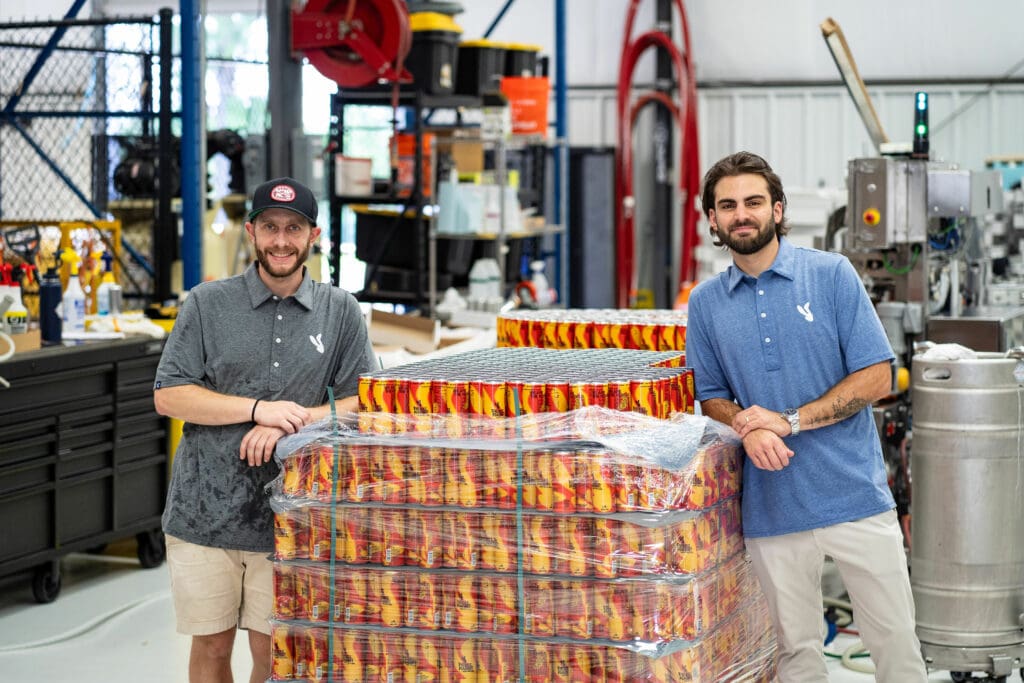On the “right” path
After graduating from Furman University, Kamber Parker Bowden embarked on her professional career with the “right path” ahead of her. Graduate, get a job, and be an adult. She moved to Chattanooga, TN to start on the first rung of the corporate ladder. It wasn’t long before she realized that her true calling lay beyond the confines of traditional employment.
Working just 10 months at her corporate job, Kamber realized that many of her friends, even those who were older and on their second and third career moves, were experiencing dissatisfaction and frustration in the workplace. Why? Moving back to Greenville to work for a small non-profit, she began digging into this question. Kamber started a blog as a creative outlet, interviewing other young professionals. Working for a small nonprofit provided Kamber with a much better work-life balance even though it came with a pay cut. This also provided flexibility for her “side hustle.” For two years, Kamber posted an interview every single week.
Little did she know that this humble blog would lay the foundation for YoPro Know—a platform that would redefine her trajectory and impact countless lives in the process.
From chaos and uncertainty to impact
Fast forward to 2020; Covid happens. Amidst the chaos and uncertainty of the times, Kamber found herself presented with an opportunity to pivot and expand her platform’s reach through the power of podcasting. The YoPro Know Podcast was born—where she could amplify the voices of young professionals and provide meaningful dialogue and connection in a virtual landscape.
After two years of collecting stories from young professionals, or “YoPros”,, Kamber realized there were overlapping themes and messages she was hearing from young professionals. Her network started pointing out the quality of her data and encouraged her to use it. Monetize it! But how? The first model was offering memberships to young professionals, but she quickly learned there was not enough individual interest based on the size of her audience at the time. She needed to pivot.
Surround yourself with mentors
Kamber has always surrounded herself with mentors and it was one of those mentors that suggested she sell her content to companies instead. In 2021 she got her first company clients. A handful of remarkable leaders played a pivotal role in her journey, providing valuable experience and testimonials as she developed her consulting services aimed at helping employers develop strategies to attract and retain young professionals. With the support of several key clients, she reached a milestone enabling her to transition to full-time entrepreneurship in the summer of 2022.
However, as Kamber navigated the uncharted waters of entrepreneurship, she encountered her fair share of challenges and setbacks. The pressures of entrepreneurship, coupled with the relentless pursuit of success, challenged Kamber and led to what she calls “the emotional rollercoaster that is entrepreneurship”. She says, most entrepreneurs will know what she means there!
“The first 6 months of entrepreneurship were really tough for me. Some months I really did ask myself, what am I doing this for? It was lonely and sometimes depressing, which I am open about, but I always remembered what I was here for – and that really got me through.”
Entrepreneurship and mental health
Entrepreneurs face higher rates of depression and anxiety, often attributed to the stress, isolation, and financial pressures of running a business. Despite these challenges, the stigma surrounding mental health can deter entrepreneurs from seeking support, impacting both their well-being and business success.
Kamber feels like founders face a dilemma between prioritizing self-care and managing the demands of running a business. She incorporates yoga and running into her routine and relies on her husband, family, and friends for support to maintain a healthy work-life balance. Recognizing the importance of relationships and well-being, she tries to prioritize her health, even if it means sacrificing other aspects of her life. She shares how fortunate she is that her now-husband was all-in on her business from their very first date, even acting as a financial coach at times, his area of expertise.
“Mentoring is why I have gotten where I am. I don’t think that this would be the case if I lived somewhere other than Greenville, where senior leaders are genuinely interested in paying it forward and offer to buy someone you look up to a coffee – I was always taken aback by how willing people are to meet with me and hope I have the chance to do the same one day”
She credits her mentors with getting where she is today citing various programs like Pacesetters with the Chamber of Commerce and NextGEN’s VMS program. Mentors like Tim Justice, Minor Shaw, and Derek Pederson have played pivotal roles in shaping her business decisions. She learned of NextGEN in 2022 and pitched for the VMS program shortly after taking her business full-time. She remembers thinking, are you sure it’s free?! At that time one of her biggest struggles was loneliness. After finding the local entrepreneur ecosystem and meeting more and more people, she realized she did not have to go it alone. She also wants to shout out her NextGEN VMS mentors today: Ken Brower, Jo Hackl, and Michael Mino.
What’s next for YoPro Know?
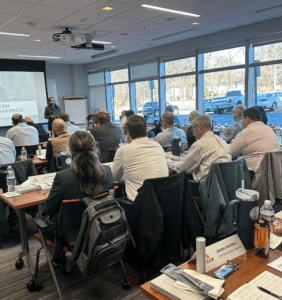
“We have to practice what we preach, right? Once you find good people, work towards what they can own and create.” Trust her, she’s the expert!
When we asked what excites her when she gets up in the morning, there was a litany of things! Speaking, consulting, strategy, helping small to mid-sized businesses, and ultimately the impact she gets to make daily. YoPro Know is at the crux of a big problem in their society. Companies are not engaging younger generations in a way that maximizes that talent. YPK has a huge potential impact that will be measurable in the future and we will all see it. “Young professionals are the future of our workforce. If we don’t tap into their strengths and develop them now – with an aging workforce and declining birthrate – we’re going to face some major challenges ahead.”
Kamber can’t see her life without YoPro Know. It’s funny looking back because she did not get A’s in her college public speaking class and now gets paid to do just that. Where she and YPK are today is not at all what she envisioned in 2018 and the path has not always been smooth, but for those of you who have met Kamber at the many networking and ecosystem events she attends, you know she is doing what she is meant to do and she will have a long-lasting impact.
Want to learn more about YoPro Know? Check out their website! https://yoproknow.com/


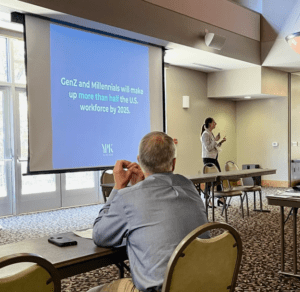
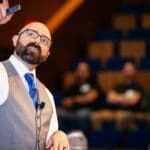
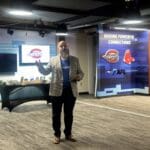
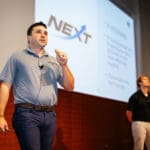
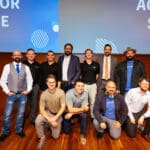
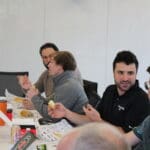
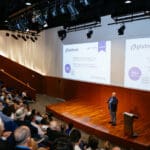
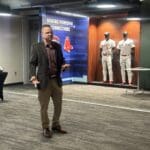
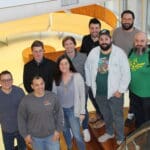
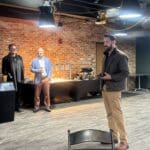
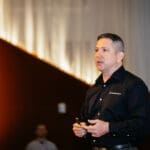
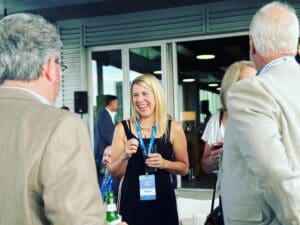 Starting the company out of their home, Nicole played a crucial role in the company’s early days, focusing on sales, business development, and even delving into finance and HR. An early challenge was coming to grips with all she didn’t know. We have no doubt that Nicole had a smile on her face throughout her personal development – we can count on her for kind words, big smile, and a bright laugh at any event she attends.
Starting the company out of their home, Nicole played a crucial role in the company’s early days, focusing on sales, business development, and even delving into finance and HR. An early challenge was coming to grips with all she didn’t know. We have no doubt that Nicole had a smile on her face throughout her personal development – we can count on her for kind words, big smile, and a bright laugh at any event she attends. 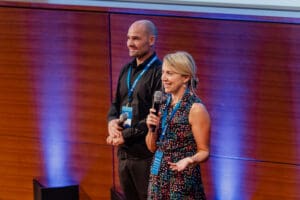
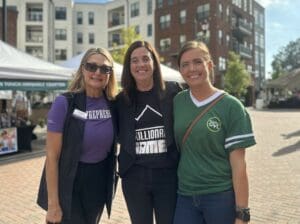


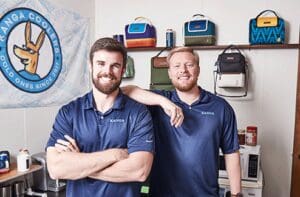
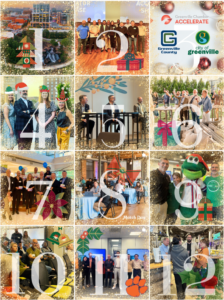 In 2023… we added 12 new mentors and 12 new mentees to our Venture Mentor Services program.
In 2023… we added 12 new mentors and 12 new mentees to our Venture Mentor Services program. 